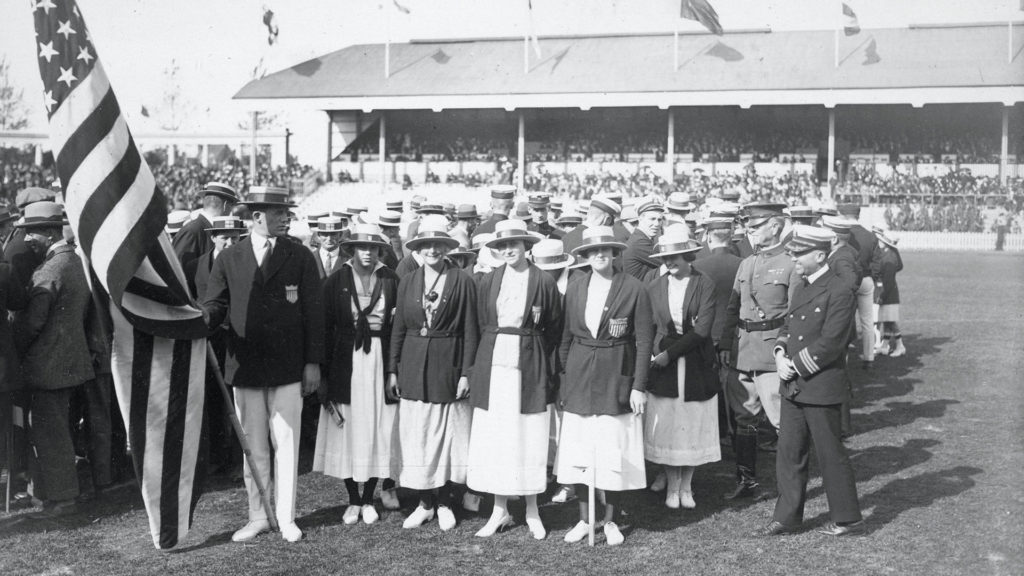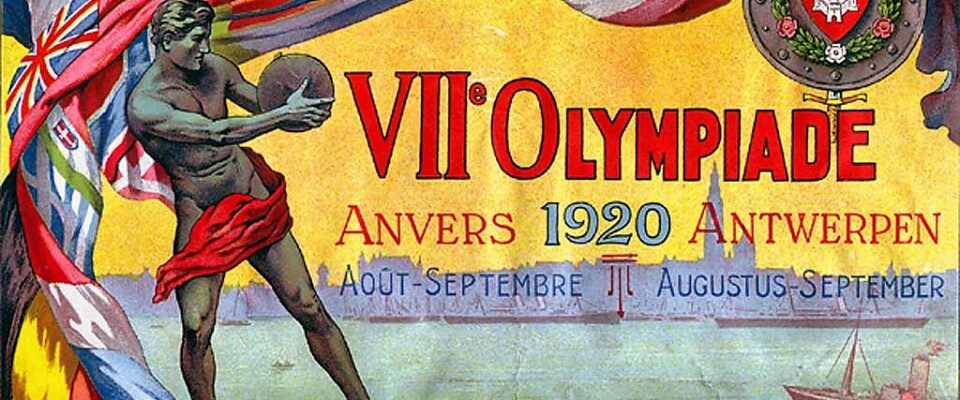Antwerp, Belgium
Overview
The “War to end all Wars” had ended, not before devastating Europe and inflicting massive amounts of suffering on the people. The Paris Peace Conference met in January of 1919 and immediately got to work creating ways to resurrect the European countries devastated by the war. The conference, which ended with the Treaty of Versailles, did not include the enemy powers of World War I and dished out harsh punishment and an impossible amount of reparations they needed to be paid by Germany. As the conference went on and the world tried to resume life and rebuild a question that seemed minuscule rose throughout Europe and to the Americas, who would host the Olympics? The games had not taken place since 1912 in Stockholm since the 1916 games that were to be held in Berlin but were canceled due to the First World War raging through Europe, and Germany being one of the war’s aggressors. The decision was made by the Fourteenth International Olympic Committee to award Belgium with the 1920 games due to the excessive suffering the people of Belgium had faced during Germany’s occupation and oppression of the country. It was also seen as an opportunity to rebuild Belgium and celebrate the perseverance shown by the Belgian people during World War I.

Significance
The games were of great significance because it was the first time since World War I that countries around the world converged together for peace. The theme of unity and peace was made the focal point of the games and shown in many different aspects, for example, these were the first games to use the Olympic flag which has the five interlocking rings that represent the five continents and unity. The creator of the flag, and the modern Olympic Games, Pierre de Coubertin wanted it to also be a symbol of unity and cooperation through sports. So that if all else is failing in the world, sports and the Olympics could be a sign of unity. The Antwerp games were also the first Olympic Games where athletes said the Olympic oath which states that athletes will compete respectfully and without discrimination or hate toward others. Doves were released for the first time at the opening ceremony to symbolize peace further, and it was the first game to use a lifted platform gold, silver, and bronze medal ceremony. The 1920 games also included art competitions to show the importance of the culture and creativity of individual countries and to send a message of peace and moving towards a brighter future, along with athleticism to promote friendly competitions without the use of arms and violence. There were multiple locations for the athletic events that took place during the months of the games in Antwerp. The game organizers and Belgian officials were very particular about the venues that were chosen so that the spectators and the entire world could witness the beauty, resilience, and best of Belgium even after being harshly oppressed during World War I. Below is a map that outlines the specific locations of some of the events that took place during the 1920 Summer Olympic Games, and there is a picture associated with each location to give a visual of what the “stages” looked like for the athletes.
Overview
The 1920 games were a beacon of peace and unity for years to come and reminder that no matter no matter what is happening in the world, or if it descending into chaos, sport and the Olympics will always be an event for a staple of unity.
Bibliography
“Antwerp 1920 Summer Olympics-Athletes, Medals & Results.” Olympics.com. Accessed March 2023. https://olympics.com/en/olympic-games/antwerp-1920.
Olympic games. Accessed April 2023. https://www.sport-olympic.gr/sp/index.php/olympic-games.

Jeffrey Horn is a senior history major at Ramapo College and will graduate in May 2023. He is also a captain of the Ramapo College Swim team and aspires to become a High School history teacher after gradutation.

